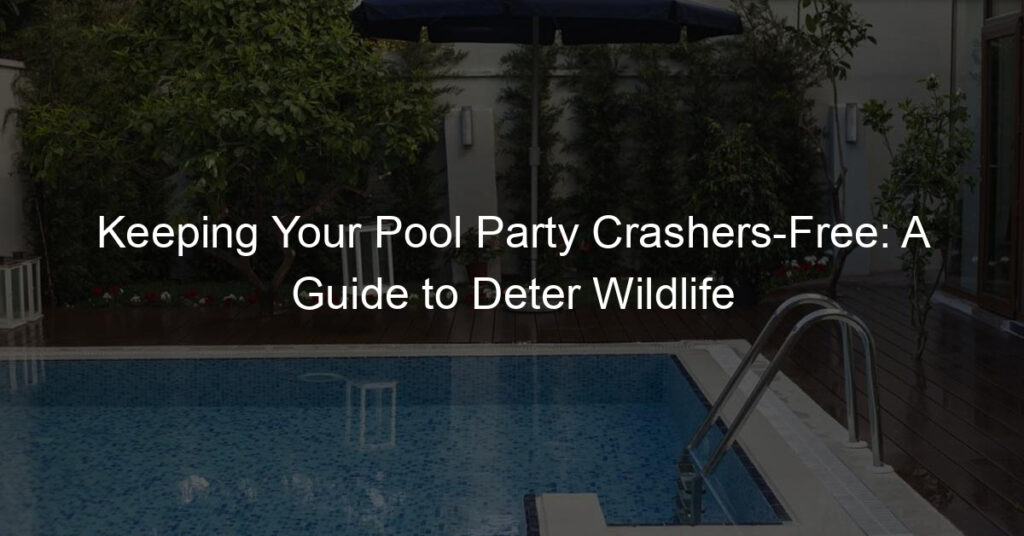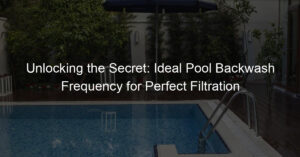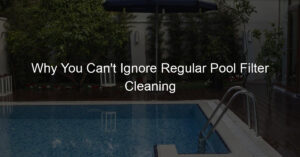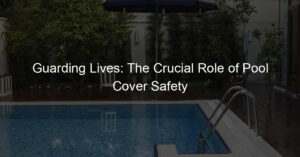Introduction: The Importance of Wildlife Pool Prevention
Swimming pools are a great source of fun and relaxation, but they can also attract wildlife. This can pose a variety of risks, both to the animals and to pool users. It’s important to understand these risks and take steps to prevent wildlife from entering your pool. This not only keeps the animals safe, but it also helps maintain the cleanliness and safety of your pool.
-
- Understanding the risks of wildlife in your pool
Wildlife can bring a range of problems if they find their way into your pool. Animals can damage pool equipment, contaminate the water, and even pose a threat to swimmers. For instance, raccoons are known to carry a variety of diseases, including rabies, which can be transmitted to humans through bites or scratches. Birds can also cause issues, as their droppings can introduce harmful bacteria into the pool water.
-
- Benefits of keeping animals out of your pool
Keeping wildlife out of your pool has several benefits. Firstly, it helps protect the animals. Many creatures that wander into pools can’t get out again and may drown. Secondly, it keeps your pool cleaner. Animals can bring in dirt, leaves, and other debris, which can clog filters and make the pool less enjoyable to use. Finally, it can save you money. Damage caused by wildlife can be costly to repair, and preventing access in the first place is often cheaper and easier.
In the following sections, we’ll delve deeper into wildlife pool safety, practical steps for preventing wildlife in your pool, exploring pool wildlife deterrents, and we’ll look at some case studies of wildlife-proof swimming pools. By the end of this article, you’ll have a clear understanding of how to keep your pool safe from animals.
Understanding Wildlife Pool Safety
When it comes to maintaining a clean and safe swimming pool, wildlife can pose a significant challenge. Understanding the types of animals that may invade your pool and their behaviors can help you take appropriate measures to keep your pool safe and wildlife-free.
Types of Wildlife That May Invade Your Pool
There are several types of wildlife that may find your pool attractive. Let’s explore some of the most common ones:
-
Common types of wildlife that can be a nuisance
Various animals can turn your pool into their playground or watering hole. Some of the most common ones include:
- Raccoons: These nocturnal creatures are known for their curiosity and can easily find their way into your pool, especially if food is nearby.
- Birds: Birds, especially waterfowl like ducks, may see your pool as a perfect spot for a swim or a drink.
- Frogs and Toads: These amphibians are attracted to water and may lay their eggs in your pool.
- Squirrels: These agile creatures may accidentally fall into your pool while jumping from tree to tree.
-
Understanding the behaviors of these animals
Understanding animal behavior is key to keeping them out of your pool. Here are some behaviors to note:
- Raccoons: Raccoons are nocturnal and are attracted to food sources. Secure your trash cans and avoid leaving food out at night.
- Birds: Birds are attracted to open water for drinking and bathing. Use pool covers when the pool is not in use.
- Frogs and Toads: These creatures are attracted to water for breeding. Install a frog log to allow them an easy exit.
- Squirrels: Squirrels are active during the day and may accidentally fall into your pool. Provide escape routes like ramps or steps.
By understanding the types of wildlife that may invade your pool and their behaviors, you can take proactive steps to protect your pool and keep it safe for your family’s enjoyment.
Why Wildlife Are Attracted to Pools
There are several reasons why wildlife may find your pool appealing. Understanding these reasons can help you take effective measures to keep these creatures at bay. Let’s explore the main attractions for wildlife.
-
- Water Source
Wildlife, like all living creatures, need water to survive. Your pool can serve as a convenient source of water, especially during hot summer months or in areas where natural water sources are scarce. Animals such as birds, squirrels, and raccoons may be attracted to your pool for this reason.
-
- Food Source
Some animals may be drawn to your pool area because it provides a food source. This could be due to plants around the pool, insects that are attracted to the water, or even food scraps left behind by humans. It’s important to keep your pool area clean and free of potential food sources to discourage wildlife visits.
-
- Shelter
Finally, your pool area may offer a sense of shelter or safety for wildlife. This could be due to the pool’s structure, surrounding vegetation, or the perceived absence of predators. Animals such as frogs, snakes, and small mammals may see your pool area as a safe place to rest or even breed.
In conclusion, your pool can unintentionally serve as a water source, food source, and shelter for various types of wildlife. By understanding these attractions, you can take steps to make your pool less appealing to these creatures, ensuring your pool’s safety and cleanliness.
Preventing Wildlife in Your Pool: Practical Steps
Keeping your pool free from unwanted wildlife visitors is not only essential for their safety but also for the cleanliness and hygiene of your pool. Here are some practical steps you can take to prevent wildlife from entering your pool.
Pool Maintenance Against Wildlife
Regular pool maintenance is a crucial step in preventing wildlife from entering your pool. Here are some key maintenance steps you should follow:
- Regular Cleaning: Regularly cleaning your pool can deter wildlife from entering. Animals are less likely to be attracted to a clean and well-maintained pool. Make sure to remove any leaves, debris, or food particles that could attract animals.
- Proper Chemical Balance: Maintaining the right chemical balance in your pool is vital. High levels of chemicals can deter animals from entering the water. However, remember to keep the chemical levels safe for humans. Always follow the manufacturer’s instructions when adding chemicals to your pool.
- Use of Pool Covers: A pool cover can act as a physical barrier, preventing animals from entering your pool. Ensure the cover is sturdy enough to withstand the weight of any animal that might try to get across it. Remember to cover your pool when it’s not in use, especially during the night when many animals are active.
By following these steps, you can significantly reduce the chances of wildlife entering your pool. Remember, a clean and well-maintained pool is not only beneficial for wildlife prevention but also ensures a safe and enjoyable swimming experience for you and your family.
How to Animal-Proof Your Pool
Keeping your pool safe from animals is a crucial aspect of maintaining a clean and safe swimming environment. Here are some practical steps you can take to animal-proof your pool:
-
- Installing fences
One of the most effective ways to keep animals out of your pool is by installing fences. Fences act as a physical barrier, preventing animals from accessing your pool area. They can be made from various materials, including metal, wood, or vinyl, and can be designed to blend in with your landscape. It’s important to ensure that the fence is high enough to deter animals and has no gaps that smaller creatures could slip through.
-
- Using animal deterrents
There are numerous animal deterrents available on the market that can help keep wildlife away from your pool. These include ultrasonic devices that emit high-frequency sounds that animals find unpleasant, motion-activated sprinklers that startle animals with a burst of water, and chemical repellents that can be sprayed around the pool area. Remember to choose a deterrent that is safe and humane for the animals.
-
- Keeping the area around the pool clean
Animals are often attracted to pools because of the food, trash, or vegetation around them. By keeping the area around your pool clean and free of potential food sources, you can significantly reduce the likelihood of animals being attracted to your pool. Regularly trim overhanging trees and shrubs, clean up fallen fruits or nuts, and secure trash cans to deter animals.
By implementing these measures, you can effectively animal-proof your pool, ensuring a safe and enjoyable swimming environment for you and your family.
Exploring Pool Wildlife Deterrents
Keeping your pool safe from wildlife is an important task. Not only does it protect the animals from harm, but it also ensures that your pool remains clean and safe for use. One way to achieve this is through the use of wildlife deterrents. These come in a variety of types, each designed to keep a specific type of wildlife away from your pool.
Commercial Wildlife Deterrents
Commercial wildlife deterrents are professionally designed and manufactured products that are specifically made to keep wildlife away from your pool. They are typically more effective and durable than homemade solutions.
-
- Types of Commercial Deterrents
There are several types of commercial wildlife deterrents available on the market. Here are a few examples:
-
-
- Ultrasonic Repellers: These devices emit high-frequency sounds that are unpleasant to animals, deterring them from approaching your pool.
- Water Jets: These deterrents use motion sensors to detect wildlife. When an animal is detected, the device sprays a burst of water, scaring the animal away.
- Pool Covers: A simple but effective deterrent, pool covers prevent wildlife from entering the pool when it’s not in use.
- How to Choose the Right One for Your Pool
-
Choosing the right wildlife deterrent for your pool depends on a few factors. Here are some things to consider:
-
- Type of Wildlife: Different deterrents are effective against different types of wildlife. For example, ultrasonic repellers might be effective against rodents, but not against birds.
- Size of Your Pool: Larger pools might require more or larger deterrents to be effective.
- Budget: Commercial deterrents can vary in price. Determine what you’re willing to spend before making a decision.
In conclusion, commercial wildlife deterrents can be an effective solution for keeping your pool safe from animals. By considering the type of wildlife in your area, the size of your pool, and your budget, you can choose the right deterrent for your needs.
DIY Wildlife Deterrents
While commercial wildlife deterrents are readily available, there are also a number of do-it-yourself (DIY) solutions that you can explore. These homemade solutions are often cost-effective and can be a fun and educational project for the whole family. Let’s dive into some of these DIY wildlife deterrents and discuss their pros and cons.
- Homemade Solutions
There are a variety of homemade solutions that can help keep wildlife away from your pool. Here are a few simple and effective ideas:
- Reflective Objects: Animals are often deterred by shiny, reflective objects. Hanging CDs or aluminum foil around your pool can help keep unwanted critters away.
- Natural Repellents: Certain plants and herbs, like lavender and rosemary, are known to repel certain animals. Planting these around your pool can create a natural barrier.
- Noise Makers: Wind chimes or other noise-making objects can scare off animals.
- Pros and Cons of DIY Deterrents
Like any solution, DIY wildlife deterrents come with their own set of pros and cons. Let’s take a look at some of them:
| Pros | Cons |
|---|---|
| Cost-effective | May require regular maintenance |
| Environmentally friendly | May not be as effective as commercial products |
| Can be a fun family project | Some animals may become accustomed to these deterrents over time |
In conclusion, DIY wildlife deterrents can be an effective, cost-saving, and environmentally friendly way to keep your pool safe from animals. However, they may require more maintenance and may not be as effective as commercial products. It’s important to consider these factors when deciding on the best solution for your pool.
Wildlife-Proof Swimming Pools: Case Studies
Let’s take a look at some real-life examples of how people have managed to keep wildlife out of their swimming pools. These case studies provide valuable insights into the challenges and solutions associated with wildlife-proof swimming pools.
-
Case Study 1: Successful Wildlife Prevention in a Residential Pool
In a suburban neighborhood in Florida, a family was struggling with a persistent problem of raccoons and squirrels getting into their backyard swimming pool. They tried various methods, including fences and scare devices, but the animals kept finding ways around them.
Finally, they installed a pool cover with a wildlife deterrent system. This system included motion sensors that would activate a sprinkler system whenever an animal approached the pool. The sudden burst of water would startle the animal and deter it from approaching the pool.
The results were impressive. Within a few weeks, the wildlife visits to the pool dropped significantly. The family was able to enjoy their pool without worrying about cleaning up after unwanted animal visitors.
-
Case Study 2: Challenges in Keeping Wildlife Out of a Public Pool
A public pool in a park in California was facing a unique challenge. The pool was frequently visited by ducks and geese from a nearby pond. The birds would leave behind feathers and droppings, creating a hygiene issue and increasing maintenance costs.
The park authorities tried various methods to deter the birds, including installing decoy predators and using noise-making devices. However, these methods were not very effective as the birds quickly got used to them.
Eventually, the authorities decided to install a pool cover that could be rolled out when the pool was not in use. This proved to be an effective solution as it physically blocked the birds from accessing the pool. The maintenance costs dropped significantly, and the pool users were happier with the cleaner pool.
These case studies highlight the importance of finding the right solution for your specific situation. What works for a residential pool may not work for a public pool, and vice versa. The key is to understand the behavior of the wildlife you are dealing with and to use a combination of deterrents that will effectively keep them away from your pool.
Keeping Your Pool Safe from Animals: Key Takeaways
As we conclude our discussion on wildlife pool safety, let’s recap the most important points. These key takeaways will help you maintain a safe and clean pool, free from wildlife invasions.
- Importance of Regular Maintenance
Regular maintenance is the first line of defense against wildlife. Keeping your pool clean and well-maintained discourages animals from making it their home. Regularly check for signs of animal activity, such as footprints or droppings. Ensure your pool cover is secure and repair any damages promptly. Remember, a clean pool is less attractive to wildlife.
- Effective Use of Wildlife Deterrents
Wildlife deterrents are an effective way to keep animals away from your pool. This includes physical barriers like fences and pool covers, as well as sensory deterrents like ultrasonic devices and repellents. Remember, the goal is not to harm the animals, but to discourage them from entering your pool area.
- Understanding Wildlife Behavior to Prevent Invasions
Understanding the behavior of local wildlife can help you anticipate and prevent invasions. For example, if you know that raccoons are active at night, you can take extra precautions during these hours. Remember, prevention is always better than cure.
In conclusion, keeping your pool safe from animals requires regular maintenance, effective use of deterrents, and an understanding of wildlife behavior. By implementing these key takeaways, you can enjoy a clean, safe, and wildlife-free pool.
| Key Takeaways | Details |
|---|---|
| Regular Maintenance | Keep your pool clean and well-maintained to discourage wildlife invasions. |
| Use of Wildlife Deterrents | Use physical and sensory deterrents to keep animals away from your pool. |
| Understanding Wildlife Behavior | Understand the behavior of local wildlife to anticipate and prevent invasions. |














